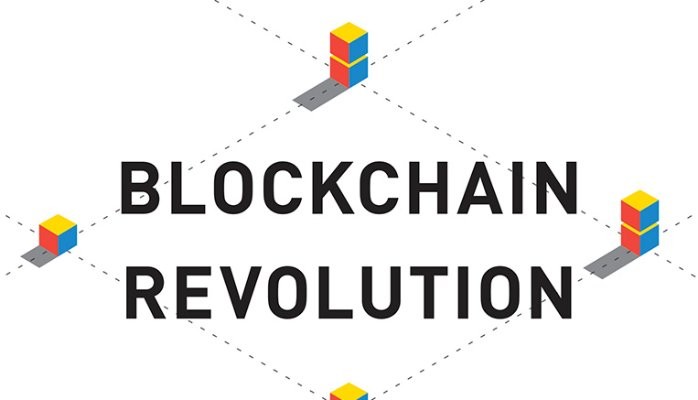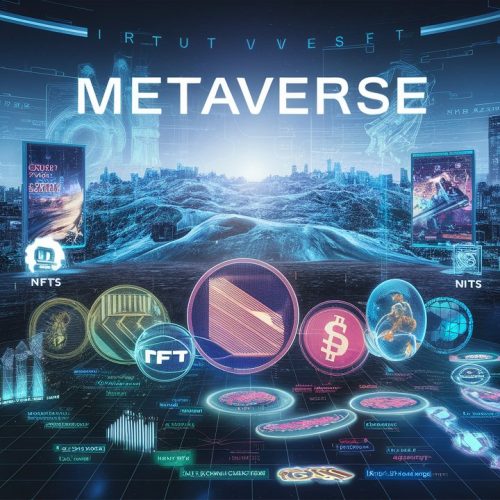Blockchain technology is rapidly emerging as a transformative force, holding promise for enterprises worldwide. Its potential to address complex challenges positions it as a sought-after solution, driving an increased demand for blockchain skills. Multiple data points substantiate the growing need for blockchain professionals, making it one of the most coveted skills in 2023. In 2019, the demand for blockchain-based jobs experienced a staggering 300% growth compared to the previous year, as reported by Glassdoor. For those familiar with the blockchain landscape, this growth signifies a plethora of exciting career opportunities within the blockchain sector. But what exactly makes blockchain one of the most sought-after skills in 2023? This article delves into the factors fueling this demand, offering insights into the pivotal role blockchain plays across various industries. Additionally, we explore the key themes underpinning the rising demand for blockchain expertise and provide valuable information on the career prospects within the blockchain technology field. 1. Enhanced Security Blockchain and security are inseparable partners. Unlike traditional single-server data storage, blockchain distributes information across a network of computers, rendering it virtually impervious to hacking. The decentralized nature of data storage eliminates the vulnerabilities associated with centralized systems, providing a robust shield against transaction data breaches. 2. Unwavering Transparency Transparency is a cornerstone of blockchain technology. Altering records within the blockchain is virtually impossible without the consensus of network participants. Even a minor change in a single record reverberates across the entire chain, ensuring the transparency of all blockchain data. This characteristic safeguards the integrity of the blockchain, making it an invaluable tool for businesses seeking to enhance accountability. 3. Expedited Transactions Blockchain revolutionizes transaction speed by eliminating the need for intermediaries. Negotiations, settlements, and clearings transpire with swiftness, as all records are meticulously maintained in a single digital ledger. This feature reduces the risk of interruptions and streamlines the entire process, facilitating rapid, efficient transactions. 4. Cost-Efficient Operations Blockchain provides permissioned access to all network participants, ensuring the immutability of data. The absence of intermediaries results in significant cost savings, with transactions costing nearly half of what they would through traditional channels. This cost efficiency is a key driver for businesses looking to optimize their financial operations. 5. Traceability Benefits Blockchain’s audit trail offers a valuable asset in the form of traceability. It meticulously tracks an asset’s origins and all the milestones it has traversed. Moreover, the audit trail identifies the users responsible for any asset modifications and provides a timestamp for each change. This level of transparency ensures accountability and facilitates the monitoring of asset history. The benefits outlined above translate into tangible advantages for enterprises seeking long-term cost efficiency and performance improvements. Blockchain’s potential to enhance security, transparency, transaction speed, cost-efficiency, and traceability establishes a strong foundation for its adoption among organizations. Consequently, the demand for skilled blockchain professionals continues to soar, as businesses recognize the transformative potential of blockchain technology in the evolving landscape of digital business. A closer examination of the blockchain job market is crucial to solidify our understanding of why blockchain ranks as one of the most sought-after skills in 2023. A recent LinkedIn report unequivocally positions blockchain as a leading tech skill for the year. This marks a significant departure from the 2019 report, which did not even feature blockchain technology on its radar. The meteoric rise of blockchain in the tech skills hierarchy might seem sudden, but it’s the result of a gradual shift in focus within the enterprise blockchain sphere. Practitioners in this field have transitioned from merely proving the utility and compliance of blockchain technology to actively creating innovative blockchain-based solutions for a diverse range of practical use cases. 1. Blockchain in Governance Another pivotal catalyst for the surging demand for blockchain skills is its application in governance. Nations such as the United States, Switzerland, and China have embraced blockchain technology, recognizing its potential to revolutionize governance. Similarly, countries that are progressively embracing the digital transformation wave view blockchain as a promising platform for developing governance solutions. Notably, blockchain-based national identity registration systems represent one of the prospective use cases for blockchain in the realm of governance. 2. Integration with Emerging Technologies Furthermore, it is imperative to acknowledge the growing opportunities for integrating blockchain with other emerging technologies. The Internet of Things (IoT) network is expanding rapidly, generating vast volumes of data. As the volume of IoT data escalates, concerns about secure storage and processing become increasingly prominent. In this context, blockchain emerges as a viable solution to bolster security, transparency, and speed in the development of IoT solutions. This convergence creates clear and promising career prospects for individuals with blockchain expertise. In conclusion, the blockchain job market is witnessing an unprecedented surge in demand, solidifying blockchain’s status as a top-tier skill for 2023. The transition from proving blockchain’s viability to actively creating innovative solutions, its application in governance, and integration with emerging technologies all contribute to this remarkable shift. As blockchain continues to redefine industries and processes, professionals with blockchain skills are poised for a rewarding and dynamic career landscape. The diverse career options available in the blockchain space serve as compelling evidence of the burgeoning demand for blockchain skills. Blockchain has firmly cemented its position as a mainstream technology, and yet, many of its career avenues remain uncharted territory. As blockchain ascends to the ranks of top tech skills in 2023, interest in the diverse job opportunities within the blockchain ecosystem is also on the rise. Aspiring blockchain professionals must be prepared to venture beyond conventional career paths. Blockchain is a constantly evolving field that requires a commitment to experimentation and innovation. For those ready to hone their blockchain skills, a multitude of career benefits await in the following blockchain-based roles: 1. Blockchain Developer Among the pivotal roles driving the demand for blockchain skills is that of a blockchain developer. This role is not only highly rewarding but also carries significant responsibility. Blockchain developers are tasked with designing and developing blockchain-based solutions and applications. To excel in this career, proficiency
EXPLORING ESSENTIAL AI TOOLS FOR SMALL BUSINESSES AND STARTUPS
Artificial intelligence, known as AI, has emerged as a transformative force capable of reshaping traditional notions of innovation. AI stands as a prominent presence among the leading technology trends globally, with its vast range of applications serving as compelling evidence of its capabilities. A frequent topic of discussion in the realm of AI is the belief that AI represents the future. This belief, however, often overlooks the myriad AI applications that offer distinct value propositions across various industries. Numerous AI tools can generate business articles, respond to customer inquiries, and produce audio or video content, expanding their utility beyond futuristic predictions. The foremost reason for embracing top AI tools in the business realm lies in their ability to expedite task completion. Small business owners encounter a multitude of challenges, from securing initial capital to sourcing skilled personnel. Nevertheless, startups and small businesses typically operate with limited workforces, leaving them with few options for task delegation. Consequently, these smaller enterprises may encounter hindrances to efficient business growth. Remarkably, the solution for scaling up small businesses and startups can be found in AI. In this article, we will delve into the top AI tools that can transform and propel your business forward. The Necessity of AI Tools for Small Businesses and Startups Before diving into the AI tool selection, it is essential to understand the significance of these tools. You might wonder why businesses should embrace AI tools and whether there is a risk of these tools replacing human employees. In reality, AI can function as a valuable companion to businesses in their nascent stages, serving as a complementary support system rather than a replacement for the existing workforce. What makes AI tools particularly appealing for small businesses and startups is their capacity to reduce the need for extensive manpower. Small business owners can effectively manage multiple business tasks, even delegating certain responsibilities to AI tools, thereby liberating their existing workforce. The use cases of these free AI tools enhance the focus of your employees on vital business priorities. Here are the notable benefits of incorporating AI tools into your small business or startup. 1. Cost Reduction A prevalent advantage evident in every AI tool is the reduction of operational costs. AI’s automation of manual tasks and streamlining of operations leads to lowered operational expenses for businesses. 2. Enhanced Efficiency and Productivity AI tools for small businesses and startups significantly boost employee productivity and efficiency. By automating manual tasks, AI saves time for employees and minimizes the margin for errors. 3. Improved Profitability Enhanced efficiency and productivity, fostered by the use of AI tools, directly translate into improved profitability for small businesses. The cost reductions achieved through AI tool applications further contribute to the enhanced profitability of startups and small businesses. 4. Personalized Customer Services An additional compelling reason for exploring the realm of ‘Best AI tools for small businesses and startups’ is the potential for personalized customer services. Advanced chatbots and AI tools facilitate personalized customer experiences for startups and small businesses. This, in turn, positions AI tools as valuable assets for customer retention and sales enhancement. In conclusion, AI tools offer small businesses and startups an invaluable edge in the competitive business landscape. They facilitate cost-effective operations, improved productivity, enhanced profitability, and personalized customer experiences. Embracing AI is not merely an option; it’s a necessity for small businesses and startups looking to thrive in today’s business world. The utility of AI tools for small businesses and startups lies in their potential to catalyze growth from the ground up. Unlike their larger corporate counterparts, small businesses and startups face the challenge of optimizing their performance on various fronts. AI tools designed for business operations offer more than just enhanced productivity and efficiency – they encompass a myriad of advantages, including pivotal cost reductions. This article will outline the must-have AI tools recommended for startups and small businesses, providing a comprehensive overview of their functionalities. Zoho Zia: The Sales Assistant Zoho Zia stands as an AI-powered assistant tailored for sales teams operating in small businesses and startups. It takes a prominent place among the top AI tools for sales functions. Zia aids your business’s sales team in the collection of customer data, automation of manual lead management, improvement of sales figures, and even document creation. Moreover, Zoho Zia seamlessly integrates into your company’s website, email systems, and social media profiles, facilitating prompt responses to customer queries and providing essential support. Furthermore, Zoho Zia extends its utility to assisting small business and startup owners in managing calendars and other essential functionalities. It proves to be a promising addition to the toolkit of AI tools for small businesses and startups, offering the capability to generate precise customer behavior or personality profiles. While Zoho Zia offers considerable advantages, it does present certain limitations, such as occasional issues and glitches, along with a user interface that may pose navigation challenges. DALL-E 2: The Image Generator DALL-E 2, the second edition of the AI tools for small businesses and startups, is renowned for its image generation capabilities. It is a response to the question, “What are the best AI tools for businesses?” With its ability to generate realistic art and images based on natural language prompts and simple text descriptions, DALL-E 2 has the potential to transform the domains of art creation and fashion design. Moreover, it excels in CGI creation and serves as a source of creative inspiration for developing new marketing content. DALL-E 2 streamlines the content generation process, saving valuable resources, time, and money for startups and small businesses. The advantages of DALL-E 2 include accessibility, speed, iterative workflow, and customization, positioning it as a noteworthy AI-powered image generator in the market. Motion: The Task Scheduler Small business owners can turn to AI tools like Motion for efficient daily task scheduling. This straightforward AI tool for startups automates scheduling and generates precise to-do lists through AI and machine learning algorithms. Motion takes into account various factors, such as working hours, average task duration,
Top 10 Most Popular DApps Revolutionizing the Digital Landscape
Decentralized applications, or DApps, have been making waves in the world of blockchain and cryptocurrency. These innovative applications are reshaping traditional industries and offering new possibilities for developers and users alike. In this article, we’ll explore the top 10 most popular DApps that have gained widespread recognition and are contributing to the evolution of decentralized technology. Uniswap – The Pioneering Decentralized Exchange A decentralized exchange, Uniswap is built on the Ethereum blockchain. It’s one of the pioneers of automated market makers (AMM) and has fundamentally changed how cryptocurrency trading occurs. Uniswap allows users to swap various ERC-20 tokens without relying on a centralized intermediary. Its user-friendly interface and liquidity provision system make it a favorite among crypto enthusiasts. Chainlink – Bridging Smart Contracts and Real-World Data Chainlink serves as a decentralized oracle network linking smart contracts with real-world data sources.This DApp solves the problem of trust in blockchain applications by enabling smart contracts to interact with external data, APIs, and payment systems. Chainlink has established itself as a critical component of the DeFi (Decentralized Finance) ecosystem. Aave – Revolutionizing Lending and Borrowing Aave is a DeFi protocol that has transformed the way people lend and borrow cryptocurrency assets. Users can deposit their tokens and earn interest, while others can borrow them by providing collateral. Aave’s unique feature is its flash loans, which allow for instant, uncollateralized borrowing, opening up new possibilities in DeFi. MakerDAO – Stablecoins and Governance MakerDAO is a decentralized autonomous organization that governs the issuance of the stablecoin Dai. By locking up collateral (mainly Ether) in smart contracts, users can generate Dai tokens. This DApp plays a vital role in maintaining stability and collateralization within the crypto market, making it a cornerstone of the DeFi ecosystem. Compound – Interest-Bearing Crypto Assets Compound is another DeFi protocol that offers users the ability to lend and borrow cryptocurrency assets while earning interest. What distinguishes Compound is its algorithmic interest rate model, which adapts interest rates in response to changes in supply and demand. This feature ensures a dynamic and competitive lending and borrowing environment. CryptoKitties – Collectible Digital Cats Moving away from the DeFi sector, CryptoKitties is a prime example of how blockchain technology can be applied for entertainment and collectibles. CryptoKitties is a blockchain-based game where players can buy, breed, and trade digital cats. Each CryptoKitty is unique and is represented as a non-fungible token (NFT), adding a whole new dimension to the world of virtual collectibles. Axie Infinity – Play-to-Earn Gaming Axie Infinity is another blockchain-based game that combines elements of Pokémon and crypto collectibles. Players collect, breed, and battle fantasy creatures called Axies, and they can earn cryptocurrency tokens by participating in the game. The concept of “play-to-earn” has gained significant attention, as it blurs the line between gaming and income generation. Decentraland – Virtual Reality on the Blockchain Decentraland is a virtual world built on blockchain technology, enabling users to purchase, trade, and construct on virtual land parcels. It operates on the Ethereum blockchain and is powered by its native token, MANA. Decentraland gives users creative freedom to build, explore, and monetize their virtual experiences, making it a prominent player in the metaverse space. SMART – Asset Tokenization Exchange SMART is a pioneering tokenization platform on the Blockchain named Kalptantra DLT, redefining how you invest. SMART brings a new level of accessibility and liquidity to traditional physical assets such as real estate, commercial airplanes and commercial yachts, transforming tangible assets into income-generating opportunities. This innovative platform is based on the principles of tokenization, allowing individuals to invest in these asset classes without the typical barriers of high entry costs and complex regulatory compliance. EXPLORING THE TOP 10 VIRTUAL CITIES. SushiSwap – Community-Driven DeFi SushiSwap is a decentralized exchange protocol and liquidity provider that was created as a fork of Uniswap. What sets SushiSwap apart is its community-driven approach and its native token, SUSHI. Users who provide liquidity to the platform can earn SUSHI tokens, and they have a say in the protocol’s governance. SushiSwap exemplifies the decentralized ethos of DeFi. Conclusion Decentralized applications continue to redefine the digital landscape, offering innovative solutions across various sectors, from finance and gaming to virtual reality and collectibles. These top 10 DApps represent the forefront of this technological revolution, with each contributing its unique value to the blockchain ecosystem. As you explore these DApps, it’s crucial to remember that the cryptocurrency and blockchain space is highly dynamic and subject to rapid changes. New DApps are continually emerging, and the popularity of existing ones can fluctuate. Staying informed and conducting thorough research is essential for anyone interested in the world of decentralized applications. Whether you’re a blockchain enthusiast, investor, or simply curious about the future of technology, these DApps offer a fascinating glimpse into what’s possible in the decentralized world.
Top 10 Blockchain-Based Companies Transforming the Real Estate Industry
The real estate industry is undergoing a transformative revolution, driven by blockchain technology. Blockchain’s security, transparency, and efficiency have paved the way for a new era of real estate transactions, where intermediaries and paperwork are being replaced by smart contracts and digital ledgers. In this blog, we will delve into the top 10 blockchain-based companies that are at the forefront of reshaping the real estate landscape, offering novel solutions for buyers, sellers, and investors alike. These companies are driving the digital transformation of the real estate industry, and their impact is set to redefine how we interact with property transactions. 1. Propy Propy is a pioneering blockchain-based platform that is transforming the way real estate transactions occur. Traditionally, real estate transactions have been plagued by inefficiencies, opacity, and sometimes, fraud. Propy addresses these issues by providing a secure and transparent platform for buying and selling properties worldwide. The blockchain technology used by Propy allows for the creation of a permanent, tamper-proof record of property ownership and transaction history. This ensures that property records are accurate, verifiable, and secure. By reducing the risk of fraud and streamlining the buying process, Propy aims to make real estate transactions more efficient and trustworthy. TOP 10 BLOCKCHAIN-BASED COMPANIES REVOLUTIONIZING INTELLECTUAL PROPERTY RIGHTS SERVICES 2. RealT RealT is at the forefront of the trend toward fractional ownership in real estate. Historically, real estate investments required substantial capital and were often limited to wealthy individuals and institutions. RealT changes this paradigm by enabling fractional ownership of properties through blockchain technology. Investors can purchase digital tokens that represent a share in a property. This fractional ownership model opens real estate investment to a much broader audience. Investors can diversify their portfolios, reduce risk, and potentially benefit from real estate appreciation without needing to buy entire properties. 3. Meridio Similar to RealT, Meridio is actively involved in tokenizing real estate assets, allowing properties to be divided into digital shares. These digital shares can then be traded on blockchain-based platforms. This innovation simplifies the process of buying and selling shares in real estate properties and makes real estate investment more accessible. Fractional ownership through Meridio creates opportunities for smaller investors to get involved in the real estate market without having to commit to a full property purchase. 4. Ubitquity Ubitquity is a blockchain-based platform that focuses on property record management and land title registration. It addresses the inefficiencies and vulnerabilities in traditional land title systems. In many regions, property records are prone to errors, fraud, and disputes. Ubitquity provides a solution by creating a secure, tamper-proof ledger for property deeds and titles. By using blockchain, Ubitquity ensures the accuracy and security of property records, reducing the risk of disputes and fraudulent activities in the real estate sector. 5. SMART SMART is a pioneering blockchain-based tokenization platform, redefining the way you invest. Specializing in real estate-backed tokens, SMART transform tangible assets into income-generating opportunities. By leveraging the power of blockchain, SMART provides a robust, secure, and efficient platform for the tokenization and trading of asset-backed utility smart tokens, offering a multitude of benefits to both sponsors and users. The core value proposition of the platform revolves around a simplified process for tokenizing assets, an adherence to regulatory compliance and a secure ecosystem for all stakeholders. 6. RealBlocks RealBlocks addresses the issue of liquidity in the real estate market through blockchain technology. Historically, real estate investments have been illiquid, meaning it is challenging to quickly buy or sell real estate holdings. RealBlocks introduces fractional ownership and tokenization of real estate assets. Investors can buy and trade shares in commercial properties. This provides new opportunities for smaller investors to participate in the commercial real estate market. By creating a liquid market for real estate assets, RealBlocks enhances accessibility and flexibility in real estate investments. 7. BitProperty BitProperty is a blockchain-based platform that focuses on global property investment. It provides a secure and efficient way to buy and sell fractional ownership in properties. Similar to RealT and Meridio, BitProperty simplifies the process of diversifying real estate portfolios by offering shares in properties. This approach appeals to a wide range of investors looking to gain exposure to the real estate market without committing to entire properties. BitProperty’s blockchain solution creates a transparent and secure platform for property investment. 8. Harbor Harbor is a blockchain company that specializes in security token offerings (STOs) for real estate assets. Security tokens represent ownership or investment in an asset, and in this case, it is real estate. Harbor ensures compliance with securities regulations and legal requirements, making it possible to conduct STOs securely and compliantly. This enables fractional ownership and transferability of real estate securities, making it easier for investors to buy, sell, and trade real estate assets within the bounds of regulatory frameworks. 9. Velox.RE Velox.RE is another company in the real estate space that uses blockchain technology to streamline property transactions. It provides a secure, transparent ledger for real estate ownership and transaction data. Velox.RE aims to reduce the risk of fraudulent activities in real estate deals by maintaining an immutable record of property transactions. This enhances transparency and trust in the real estate sector, both among industry professionals and property buyers and sellers. 10. Rentberry Rentberry is a unique blockchain-based platform that addresses the rental side of the real estate industry. Traditionally, rental applications, security deposits, and lease agreements have involved cumbersome paperwork and time-consuming processes. Rentberry simplifies the rental process by providing a secure platform for tenants to submit rental applications and security deposits efficiently. This streamlines the rental experience for both landlords and tenants, reducing paperwork and potential disputes. Rentberry leverages blockchain technology to make renting properties a more straightforward and secure process. Conclusion These top 10 blockchain-based companies are pioneering innovative solutions to transform the real estate industry. They address various aspects of real estate, from property transactions and fractional ownership to property record management and rental processes. By leveraging blockchain technology, these companies are increasing transparency, security, and accessibility in
Top 10 Blockchain-Based Companies Revolutionizing Intellectual Property Rights Services
The world of intellectual property rights (IPR) is a complex landscape, often fraught with challenges related to piracy, counterfeiting, and ownership disputes. In recent years, blockchain technology has emerged as a game-changer in this arena. Blockchain offers a secure and immutable ledger for tracking, protecting, and managing intellectual property. In this blog, we will explore the top 10 blockchain-based companies that are transforming the IPR services industry. Mycelia for Music (Mycelia) Mycelia for Music is a project led by Grammy-winning musician Imogen Heap. It uses blockchain technology to address the challenges musicians face in the digital age. Mycelia empowers artists to assert control over their music, from production to distribution. By creating smart contracts on the blockchain, artists can ensure that they receive fair compensation for each play, and their credits and royalties are accurately tracked. This ensures that musicians have transparency and control over their intellectual property rights. Ascribe Ascribe provides artists with a platform to record and secure their digital art on the blockchain. Each piece of art is timestamped and verified, ensuring its provenance and ownership. This service is particularly important in the world of digital art, where reproductions can be easily distributed. Ascribe helps artists maintain control over their creations and combat plagiarism. MyIPR The world’s first IP management cloud – MyIPR, is a blockchain-based platform that provides a secure and accessible certification of creation. Creators can now easily obtain a MyIPR certificate – a piece of direct evidence that holds significant weight and serves as undeniable proof of ownership. With a simple file or image upload followed by a click of the MyIPR button, creators can instantly protect their creations. Po.et Po.et is a blockchain-based platform that serves the creative industries, offering a decentralized network where writers, content creators, and publishers can assert their intellectual property rights. Po.et enables creators to protect their work from unauthorized use and ensures that they receive proper attribution and compensation for their content. KodakOne KodakOne uses blockchain to safeguard image copyrights. Photographers and artists can register their work on the platform, creating an immutable record of ownership. If their images are used without permission, KodakOne’s AI-driven system identifies these instances and assists photographers in pursuing proper compensation. This service offers an effective solution to protect the intellectual property rights of visual artists. IPCHAIN Database IPCHAIN Database focuses on patent, trademark, and copyright management. It employs blockchain to create secure, tamper-proof records of intellectual property ownership and transactions. By using blockchain’s immutable ledger, it ensures a transparent and verifiable history of intellectual property rights, reducing disputes and infringements. BLOCKv BLOCKv takes a unique approach by concentrating on digital assets in the virtual world. It offers a blockchain-based platform for creating and managing digital goods, collectibles, and interactive virtual items. By providing ownership and provenance for these digital assets, BLOCKv is integral to the gaming, virtual reality, and digital collectibles industries. Top 10 Most Popular DApps Revolutionizing the Digital Landscape Bernstein Bernstein is a blockchain-based platform that provides intellectual property protection and management services. It offers a decentralized registry for patents, trademarks, and copyrights. Creators and innovators can register their IP assets on the blockchain, ensuring transparent ownership and rights management without the need for intermediaries. This blockchain-based service streamlines the protection of intellectual property. CopPay CopPay uses blockchain technology to secure intellectual property for businesses and startups. It offers a platform for registering and timestamping patents, trademarks, and copyrights on the blockchain. By creating an immutable record, CopPay ensures the clear and unforgeable history of intellectual property ownership, promoting trust and confidence for IP holders. Owning Owning is an all-encompassing platform for safeguarding intellectual property rights. It offers blockchain-based patent registration, copyright management, and trademark protection services. With a focus on providing comprehensive support for creators and businesses, Owning aims to cater to a wide range of industries. This service streamlines the process of securing and managing intellectual property assets in an efficient and secure manner. Conclusion The top 10 blockchain-based companies mentioned in this blog are at the forefront of the intellectual property rights services revolution. These firms are using blockchain technology to create transparent, secure, and decentralized solutions for artists, creators, inventors, and businesses to protect their intellectual property. As blockchain continues to mature and gain wider adoption, we can expect even more innovative and transformative services in the IPR sector, providing creators and innovators with the tools they need to safeguard and capitalize on their intellectual assets. The future of IPR services looks brighter and more secure with the adoption of blockchain technology.
Exploring the Top 10 Virtual Cities.
In today’s interconnected world, virtual reality has brought about a paradigm shift in the way we experience and interact with the digital realm. Virtual cities are the culmination of this technological revolution, offering immersive environments that blend creativity, innovation, and fantasy. From bustling metropolises to serene landscapes, the possibilities are endless. In this blog, we will embark on a journey to discover the top 10 virtual cities that showcase the limitless potential of digital landscapes. Second Life Second Life is one of the pioneers in virtual city space. Launched in 2003, it offers a user-created 3D world where individuals can build, socialize, and engage in countless activities. From shopping districts to serene beaches, Second Life provides a virtual utopia for its users. Decentraland Decentraland is a blockchain-based virtual world where users can buy, sell, and develop parcels of virtual real estate. This open-world city encourages creativity and is driven by blockchain technology, ensuring true ownership of virtual assets. Sansar Created by the creators of Second Life, Sansar offers a platform for users to build and share immersive 3D experiences. It features a wide range of environments, from futuristic cities to dreamlike landscapes, making it a hub for virtual creativity. NeosVR NeosVR is a highly customizable metaverse that enables users to create and interact in intricate, collaborative 3D environments. Its versatility allows for a wide array of experiences, from educational simulations to social hangouts. High Fidelity High Fidelity is an open-source platform that focuses on creating shared VR spaces. Users can gather, socialize, and explore a wide range of digital domains, making it a promising platform for social interaction in the virtual world. VRChat VRChat has gained immense popularity for its user-generated content and vibrant community. It offers an array of user-created worlds, from game-inspired realms to social hubs where users can interact through their customizable avatars. Mayaa-Verse Mayaa-Verse is an ultra-realistic 100sqkm immersive world comprising 17,000 interconnected worlds. The platform hosts a virtual society, enabling simulated interactions between individuals, communities and corporates using blockchain technology, ensuring the security of the highest order for commerce happening on account of these transactions. The Sims While not a traditional virtual city, The Sims franchise deserves a mention. It has been a cornerstone of virtual life simulations for decades, allowing players to build and manage their own virtual cities. AltspaceVR AltspaceVR is a social VR platform that hosts events, meetups, and interactive experiences. It’s a unique space for connecting with people from around the world in various virtual environments. No Man’s Sky Although not strictly a virtual city, No Man’s Sky deserves a spot on this list. This vast, procedurally generated universe offers a diverse array of planets to explore, each with its unique landscapes, flora, and fauna. It’s a testament to the power of procedural generation in virtual worlds. Conclusion Virtual cities have evolved from simple simulations into dynamic, interactive metaverses where creativity knows no bounds. These top 10 virtual cities represent just a fraction of the digital landscapes available to explore. As technology continues to advance, we can expect even more immersive, interconnected virtual worlds to captivate our imaginations and redefine our online experiences. So, whether you’re into socializing, gaming, or simply exploring, there’s a virtual city waiting for you to step into and embark on your own digital odyssey. Top 10 Blockchain-Based Companies Transforming the Real Estate Industry








